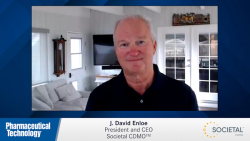
OR WAIT null SECS
- About Us
- Advertise
- Contact Us
- Editorial Info
- Editorial Advisory Board
- Do Not Sell My Personal Information
- Privacy Policy
- Terms and Conditions
© 2026 MJH Life Sciences™ , Pharmaceutical Technology - Pharma News and Development Insights. All rights reserved.
FDA Asserts Authority Over Stem-Cell Treatments
The US District Court for the District of Columbia has ruled that FDA has the authority to regulate stem-cell treatments as drugs.
The US District Court for the District of Columbia has ruled that FDA has the authority to regulate stem-cell treatments as drugs. At issue was an FDA enforcement action against Colorado-based Regenerative Services, a clinic that offered treatments in which cells from patients’ blood and bone marrow were removed, processed to isolate and expand the stem cell component, then reinfused to treat joint and muscle pain. Regenerative Services claimed that it was practicing medicine as allowed by Colorado law, and therefore exempt from FDA oversight. FDA does not consider minimally processed tissue products, such as skin used for grafts or platelets used for transfusions, to be drugs. However, the court agreed that the stem-cell product was more than minimally processed tissue, and therefore its use constituted the manufacturing, holding for sale, and distribution of an unapproved biological drug product. As such, the product required the submission of a biologic license agreement and manufacture under cGMP.
The ruling paves the way for FDA to enforce oversight over the numerous stem-cell clinics that have come into existence over the past few years. Such clinics offer autologous stem-cell treatments for any number of ailments, including arthritis, cancer, wound-healing, and neurodegenerative disorders. None of the treatments are backed by clinical trials, and the products are of unknown purity and potency. The proliferation of such treatments prompted FDA to issue a consumer warning, advising prospective patients that “FDA has approved only one stem cell product, Hemacord, a cord blood-derived product manufactured by the New York Blood Center and used for specified indications in patients with disorders affecting the body’s blood-forming system.”
There’s some grumbling on the blogosphere about FDA being able to regulate what patients are able to do with their own tissues (see Regenerative Services’ response to the ruling). Others are concerned that overzealous enforcement will stifle the development of new treatments (see this article from Forbes). But these treatments are being promoted to cure, prevent, and mitigate disease-that sure sounds like a drug to me.


